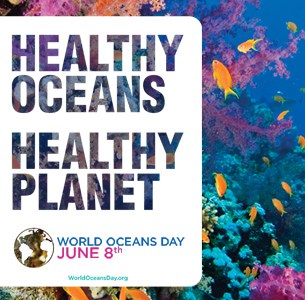REFLECT, ACT TO SAFEGUARD CARIBBEAN SEA – CARICOM ON WORLD OCEANS DAY
Fuente: http://caricom.org
Credits: https://youtu.be/tSEbPSrKkp4
The Caribbean Community (CARICOM), as steward of the the Caribbean Sea – the second largest sea in the world – is joining in the observance of World Oceans Day today.
And this year’s celebration should be used to reflect and act “as we seek to safeguard this natural resource so critical to this Region’s economy, cultural expression and recreation,” according to Dr. Douglas Slater, Assistant Secretary General, Human and Social Development, CARICOM Secretariat.
Please read Dr. Slater’s Message below:
Message by Dr. Douglas Slater, Assistant Secretary-General, Human and Social Development, CARICOM Secretariat, on the occasion of World Oceans Day
“The Caribbean Community (CARICOM) joins the international observance of World Oceans Day under the theme ‘Healthy Oceans, Healthy Planet’. We add our voices as stewards of the Caribbean Sea, the second largest sea in the world with an area of over 2.5 million square kilometres.
The Caribbean Sea is of critical importance to the wider Caribbean Region especially as it relates to: –
Its role in Food Security and Nutrition;
- Acting as the resource base supporting a multi-million dollar tourism industry;
- Serving as one of the world’s great shipping routes; and
- Supporting several major ecosystems including mangroves, sea-grass beds and coral reefs.

While we are cognisant of the importance of the waters that border our shores, it is apparent that the World’s oceans are being turned into “dumping grounds” currently estimated to contain approximately 150 million tons of garbage. Scientists have estimated that 32 % of all plastic packaging ends up into the natural ecosystems including the ocean. Further, eight million tons of plastic are dumped into the ocean each year. In practical terms this means that there is one ton of plastic for every five tons of fish. If we continue polluting at this rate by 2050 the amount of plastic in the ocean will surpass the amount of fish
This situation is problematic not only for the human population as well but also the species inhabiting the oceans. Ingestion of plastic particles harm fish which in turn threatens the livelihoods of fishermen. Tiny plastic particles also get into fish, shellfish and marine mammals which can then be ingested by humans. Endangered species of sea turtle often mistake plastic bags for jellyfish and end up ingesting them and subsequently suffocating. The issue of plastic bags in particular and their impact on the environment has become so problematic that two CARCIOM Member States, Antigua and Barbuda and Haiti have banned their importation.
It is critical therefore that this year’s celebration be used as a call for reflection and action by the Region as we seek to safeguard this natural resource so critical to this Region’s economy, cultural expression and recreation. In that regard, the Government of Grenada must be commended for recently hosting the “Grenada Blue Week: The International Conference to Promote Blue Growth and Investment which was held in St. George’s, Grenada, from May 14-22, 2016 and which shed light on the opportunities which can be derived from “Healthy Oceans.”
We acknowledge that there have been a number of initiatives by our regional institutions including the Caribbean Regional Fisheries Mechanism (CRFM), the Caribbean Public Health Agency (CARPHA) and the University of the West Indies (UWI) to address the sustainable use of our ocean resources via research, pilot projects and targeted interventions in Member States.
Additionally, there has also been significant work by intergovernmental organisation such as the United Nations (United Nations Environment Programme (UNEP), United Nations Educational, Scientific and Cultural Organization (UNESCO), United Nations Economic Commission for Latin America and the Caribbean (UNECLAC), Food and Agricultural Organisation (FAO)) as well as the Association of Caribbean States (ACS).
We would therefore seek to enhance our collaboration and cooperation for continue








